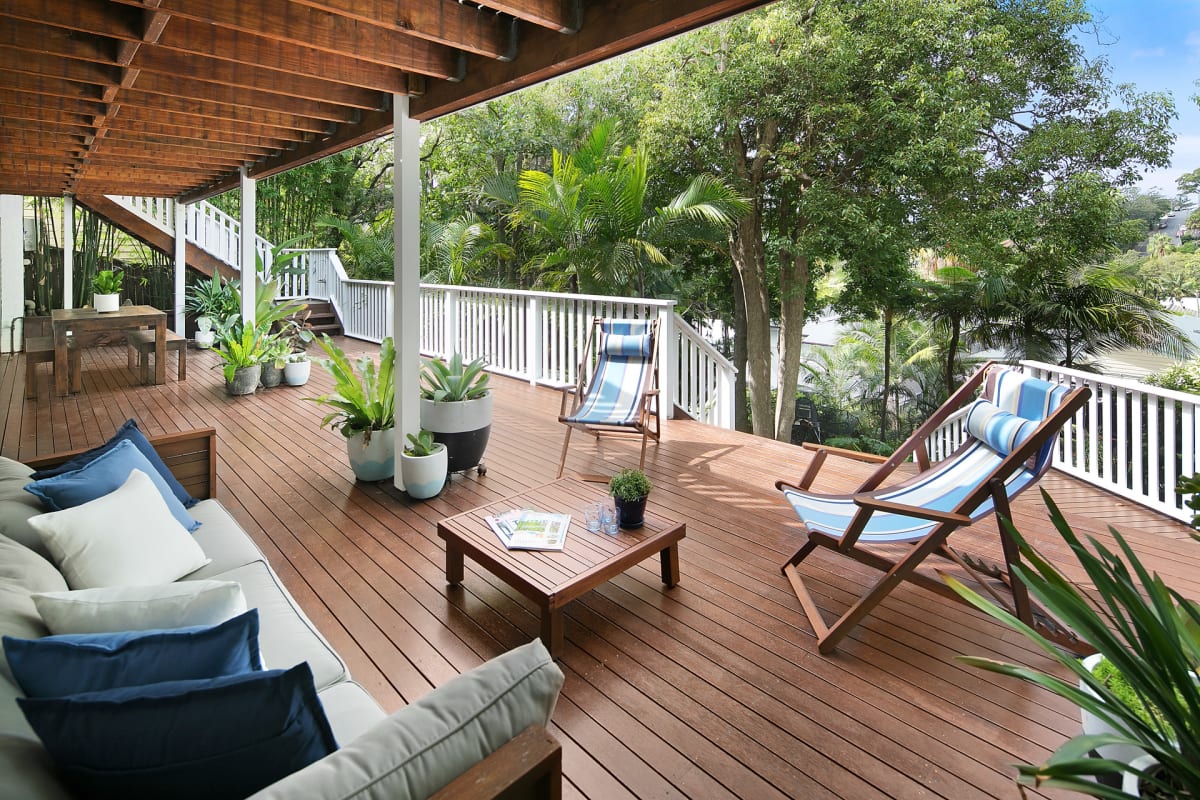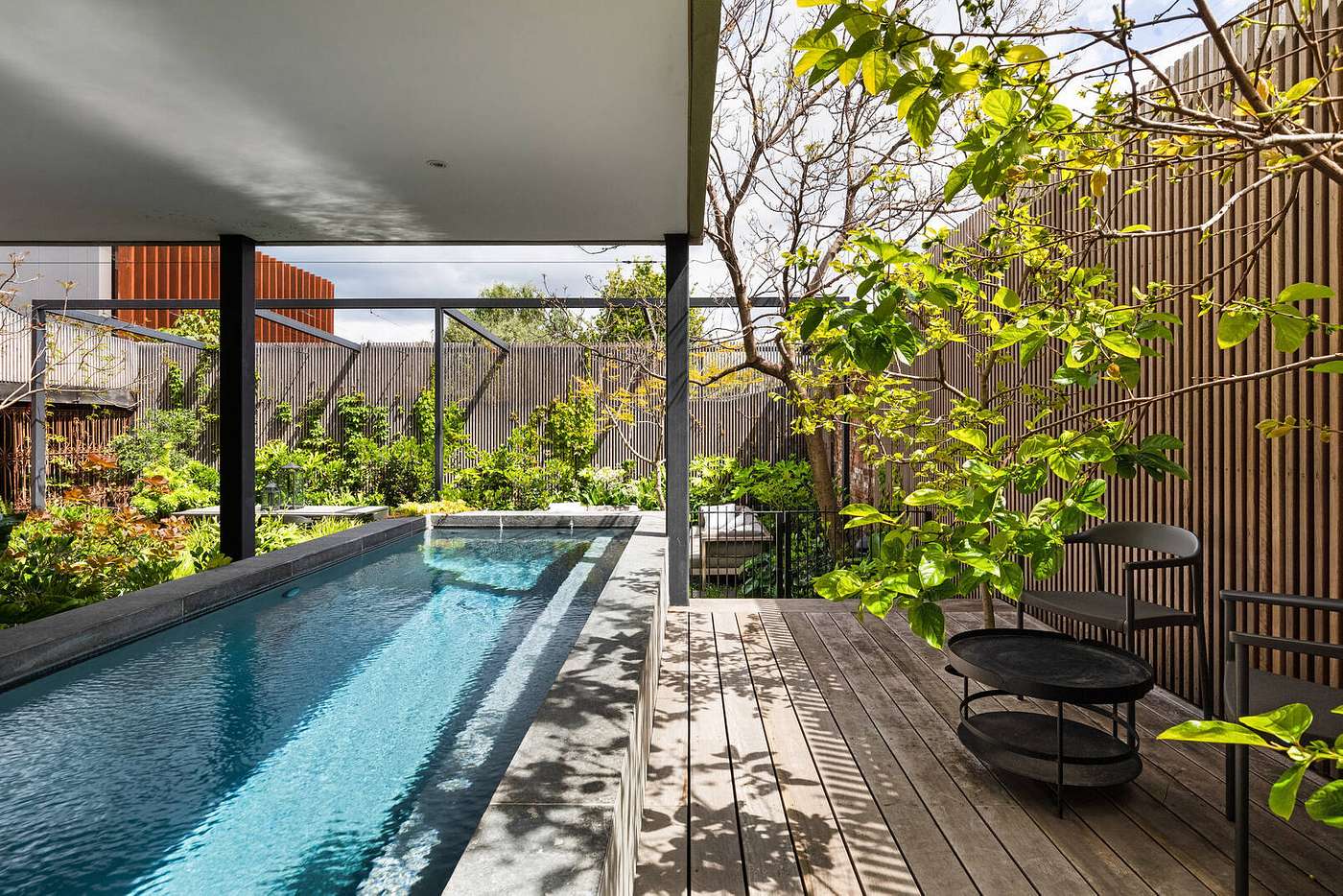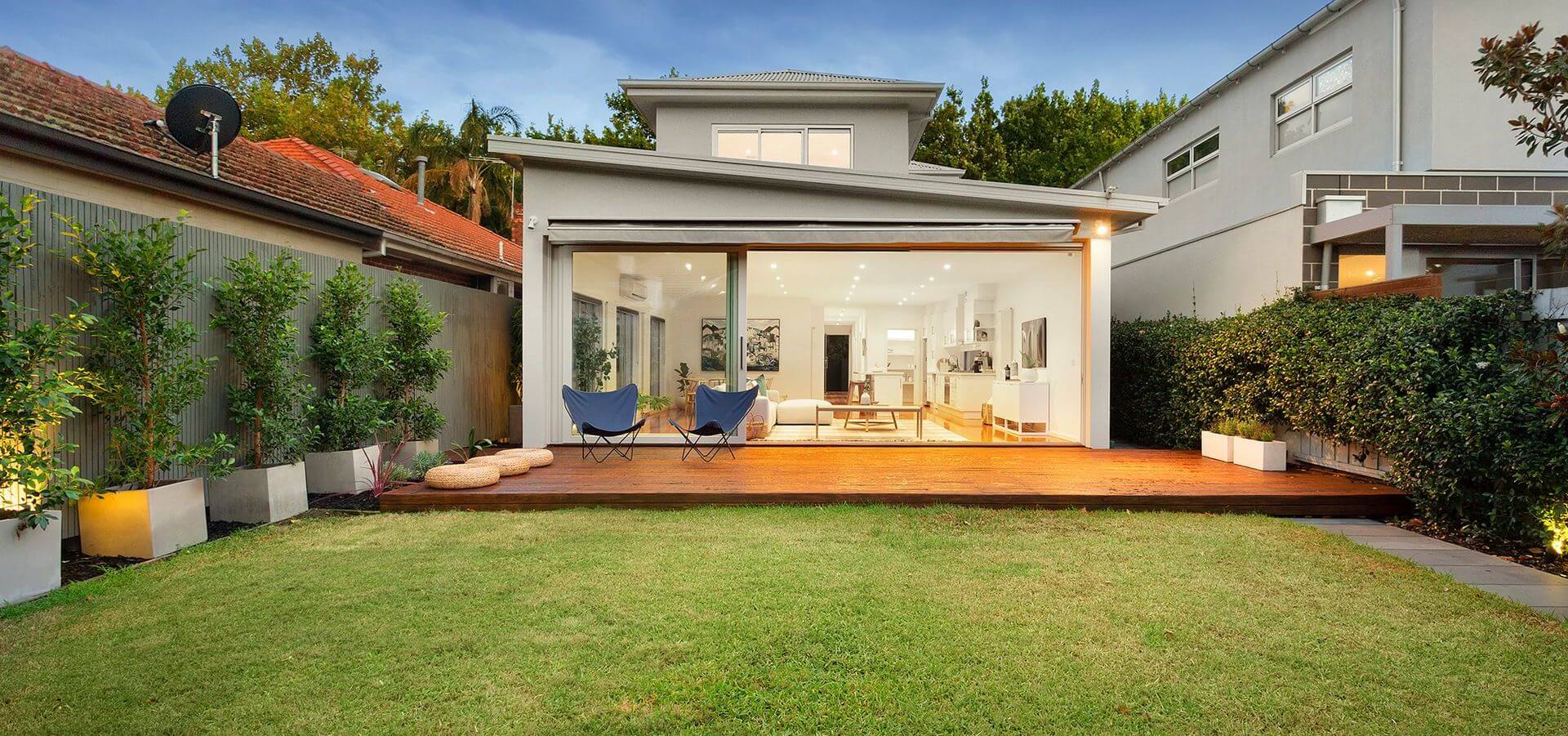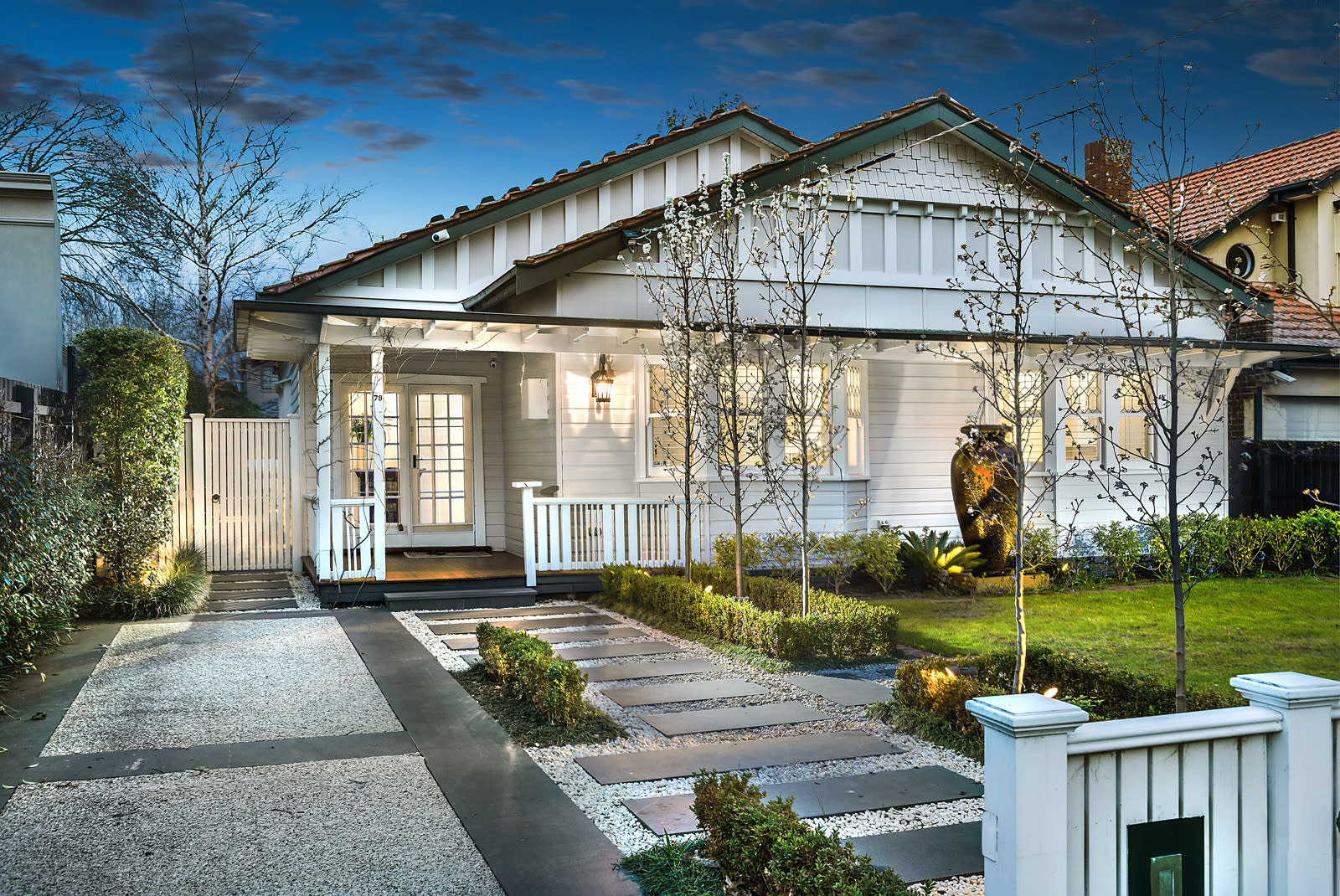Decking is a perfect addition to every backyard. Decking extends the living space of your home by turning a section of your yard into an extra useable room for relaxing, dining and entertaining. It also significantly increases the value of your home and makes your garden look considerably more inviting by providing the perfect focal point to organise your landscaping and outdoor furniture around.
Here’s a rundown of the most popular materials for decking, and each of their pros and cons.
 For sale: 14 Lindley Avenue, Narrabeen, NSW
For sale: 14 Lindley Avenue, Narrabeen, NSW
Topics in this article:
Hardwood decking
Hardwood is probably the most popular material choice for decking. Hardwoods include Jarrah, Merbau, Spotted Gum and Cumaru.
Pros
- The undeniable beauty of hardwood makes decking instantly appealing. Hardwoods are the warmest and most vibrant woods, full of natural hues and variations.
- A high-end product that looks and feels great and is just like having an indoor product outdoors.
- Incredibly durable, naturally-resistant to splitting and other issues.
- Pliable, thereby able to be crafted to meet multiple needs.
- The possibility of invisible fastenings, so no need for nails and screws.
- Most hardwoods are FSC-certified.
Cons
- Quality hardwoods are expensive, and high material costs can make for a costly deck installation.
- Requires maintenance and will need oiling and staining on an annual basis.
 For sale: 25 Taits Road, Barwon Heads, VIC
For sale: 25 Taits Road, Barwon Heads, VIC
Softwood decking (treated pine)
Softwoods, like treated pine, are another popular choice for decks.
Pros
- Cost-effective.
- Incredibly durable thanks to the tightly-packed wood fibres.
- Can be stained in a variety of colours, thanks to the light-colour of the material.
- Available in a variety of designs – smooth, gripped, grooved.
- Eco-friendly as it is grown in plantations.
Cons
- Requires maintenance and will need treating and staining on an annual basis.
- Not as instantly-impressive as high-end hardwood options.
- Can quickly deteriorate and turn grey due to lack of maintenance.
 54 The Ridge, Mount Eliza, VIC
54 The Ridge, Mount Eliza, VIC
Composite decking
Composite decking is becoming an increasingly popular option thanks to its ability to provide a timber look with a few added benefits.
Pros
- Made of recycled plastic and wood grain, making it an excellent choice for those seeking to reduce their carbon footprint.
- Naturally resistant to mould and insects, as well as being less prone to rot.
- Quicker (and therefore cheaper) to install due to uniform plank sizes.
- Lower maintenance requirements with no staining required.
Cons
- More expensive than softwood, especially if a composite is used for the frame as well as the deck.
- No option to change the colour once an initial stain has been selected.
 For sale: 83 Scott Street, Beaumaris, VIC
For sale: 83 Scott Street, Beaumaris, VIC
Floating deck
Floating decks provide another popular decking option, because of their ease of relocation.
Pros
- Removable, as they are not fixed in place, so can be moved around the backyard or even between houses. The flexibility of this form of decking ensures that the deck is in the sun during both winter and summer.
- Quicker (and therefore cheaper) to install.
Cons
- Typically, not as durable as fixed-form decks.
- Maintenance is necessary to prolong the lifespan.
For more decking advice and deck maintenance tips take a look at ‘Should I stain or oil my deck?‘ and a step by step guide to deck restoration.






Full informative content